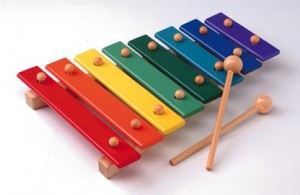 Lately, I’ve been considering offering pre-piano music classes for children and their parents — someday, when I have a private studio in my home again (Right now, I teach piano privately through my university’s community music school.). My goal in providing these classes someday is to better prepare young children (think ages 0-5, especially) for private piano lessons. So, this semester, I enrolled in an Early Childhood Music class to learn about the various methodologies (such as Orff, Kodaly, Gordon, Feierabend, etc.) for teaching music to young children.
Lately, I’ve been considering offering pre-piano music classes for children and their parents — someday, when I have a private studio in my home again (Right now, I teach piano privately through my university’s community music school.). My goal in providing these classes someday is to better prepare young children (think ages 0-5, especially) for private piano lessons. So, this semester, I enrolled in an Early Childhood Music class to learn about the various methodologies (such as Orff, Kodaly, Gordon, Feierabend, etc.) for teaching music to young children.
I’m excited to think about starting up these classes someday. Here’s some things I’m been thinking about…
Things to consider:
- Location/space – large, open room.
- Parents’ presence – required or not?
- Materials – songbooks, musical instruments, colored scarves, rugs, cd player, etc.
- Class size – six to ten, perhaps?
- Ages – 0-18 mo., 18 mo.-3 yrs, 3-5 yrs.
- Class duration – 30, 45, 50, or 55 minutes.
- Sessions – 7- or 14-week sessions.
- Goals – music literacy; musical experience; aural development; building the parents’ & children’s repertoire of music to share in the home; music as expression; building of pre-piano skills; etc.
Types of Activities:
- Songs with motions
- Listening & responding with movement (classical, folk, jazz, pop, etc.)
- Fingerplays
- Chants
- Musical games
- Other activities
I think these classes will be fun! And I’m hoping that introducing such classes will give my beginner piano students a head start once they begin private lessons. Has anyone offered similar classes in their piano studios before? I’d love to hear about it.
Photo credit: http://www.flickr.com/photos/89186997@N00/ / CC BY 2.0


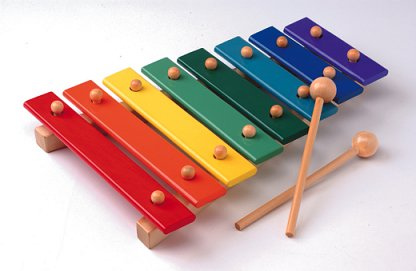
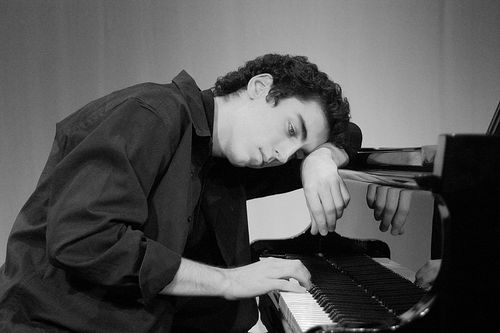
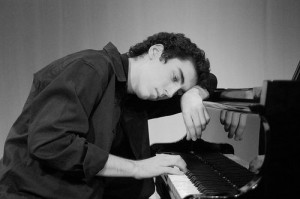
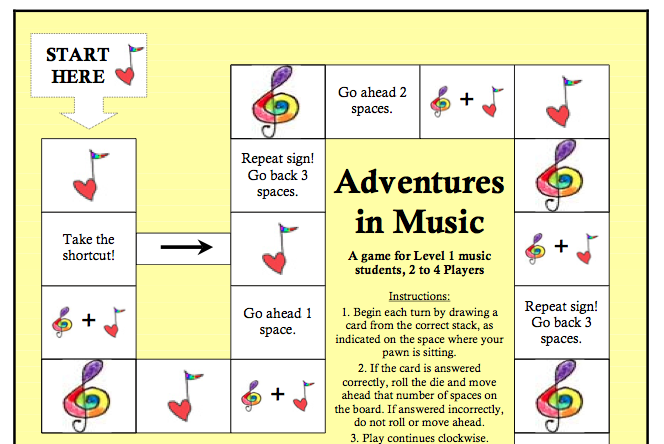
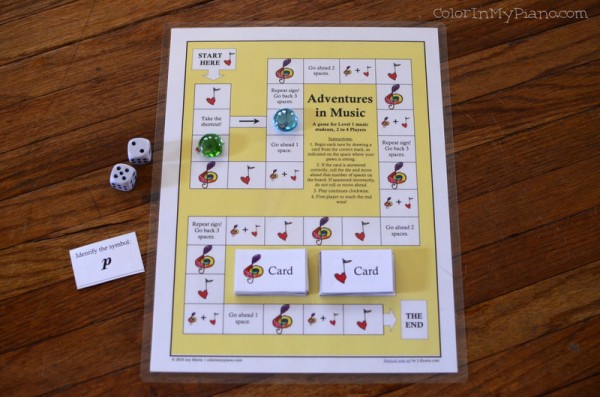
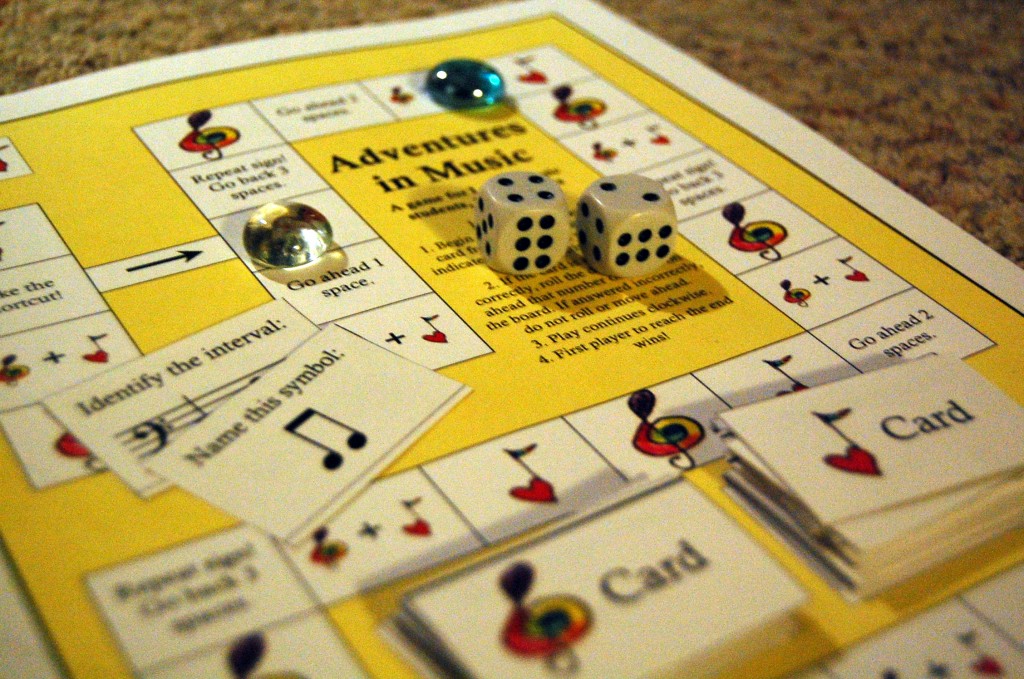

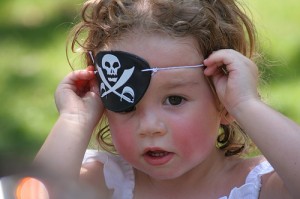
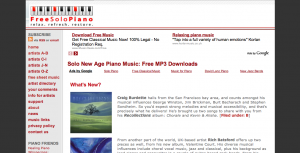
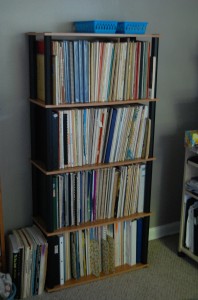 How do your organize your library of music books? About a month ago, I purchased a new bookshelf (see photo) for my music, because most of my books were still in boxes with no place to go since our move to our new apartment. In just a few hours, I managed to re-organize all my music books, and I’m proud to say I can actually find stuff I’m looking for when I need it!
How do your organize your library of music books? About a month ago, I purchased a new bookshelf (see photo) for my music, because most of my books were still in boxes with no place to go since our move to our new apartment. In just a few hours, I managed to re-organize all my music books, and I’m proud to say I can actually find stuff I’m looking for when I need it!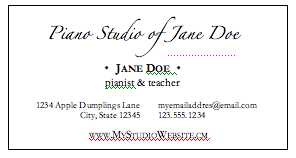
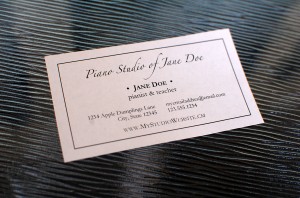 Having business cards on hand is a convenient and professional way to give your contact information to potential students and their parents. Here’s a simple, clean template for making your own business cards for your music studio!
Having business cards on hand is a convenient and professional way to give your contact information to potential students and their parents. Here’s a simple, clean template for making your own business cards for your music studio!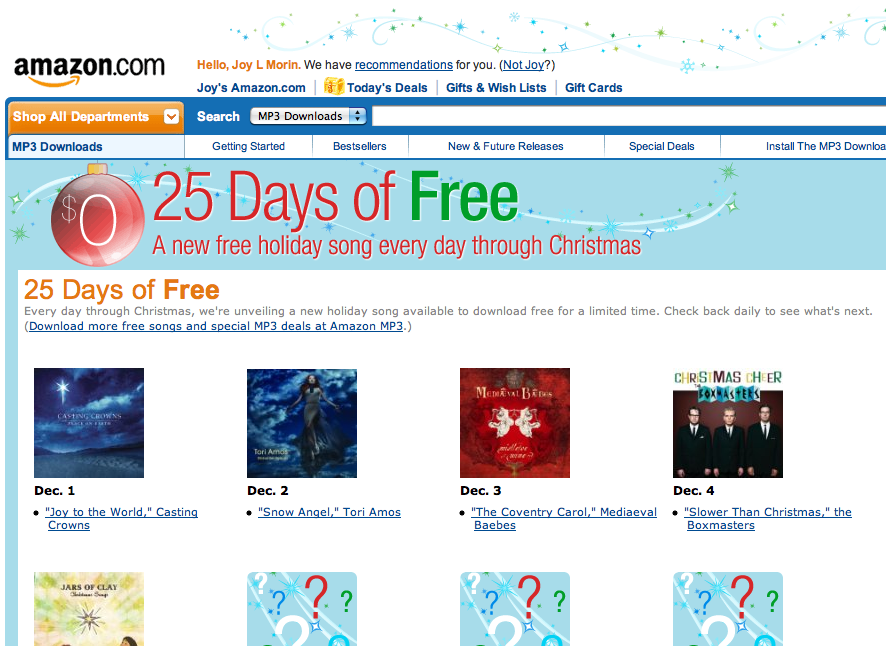
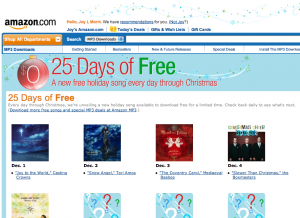 Over at Amazon.com, they are offering 25 days of free Christmas songs to download! Right now most notably they are offering “Joy to the World” by Casting Crowns and “God Rest Ye, Merry Gentlemen” by Jars of Clay.
Over at Amazon.com, they are offering 25 days of free Christmas songs to download! Right now most notably they are offering “Joy to the World” by Casting Crowns and “God Rest Ye, Merry Gentlemen” by Jars of Clay.
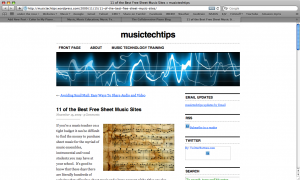 You can never have too much free music! Head on over to musictechtips.wordpress.com and check out this post:
You can never have too much free music! Head on over to musictechtips.wordpress.com and check out this post: 
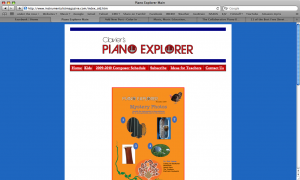 Many piano teachers subscribe to Clavier magazine, and some even subscribe their students to Clavier’s Piano Explorer, the music magazine for kids. I recently found out that their site contains some great resources for teaching about various composers and concepts in music history. This month, there have some great resources about Beethoven, including:
Many piano teachers subscribe to Clavier magazine, and some even subscribe their students to Clavier’s Piano Explorer, the music magazine for kids. I recently found out that their site contains some great resources for teaching about various composers and concepts in music history. This month, there have some great resources about Beethoven, including: